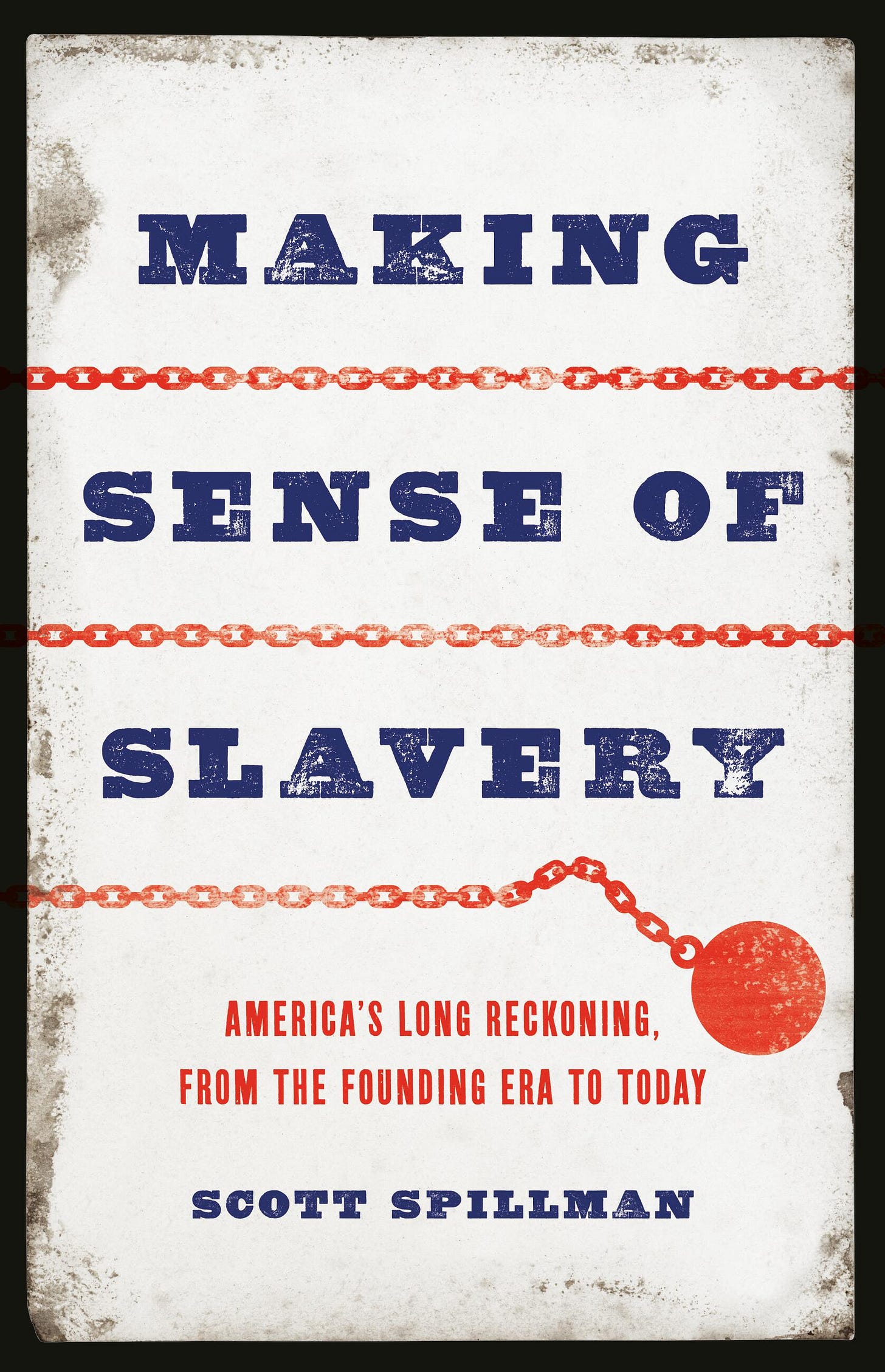If you’ve been following me on social media or listening to the podcast this week then you know we’ve been telling anyone who will listen about how exceptional of a film Sinners is. There’s a lot of reasons for that but among them is how the film reckons with the long history of slavery and violence in the American Southeast.
It’s 2025 and the institution of slavery continues to rear its ugly head here in the States. Now, some of that is good. We need to continue to grapple with the legacies of slavery, violence, and injustice towards Africans and African Americans if we are ever to get a better world that everyone can enjoy.
But there’s somehow a lot of confusion over slavery and its legacy as well. Recently Indiana Lieutenant Governor Micah Beckwith claimed the 3/5 Compromise was actually something that gave northern states more power, which of course is the opposite of what actually happened.1 And of course, there remain numerous statues to slaveholders who fought for the Confederacy and a slew of folks who support them.
So how did we get here? Why haven’t we as a society gotten the history of slavery and its consequences figured out? Well, that’s why we have this podcast and why we invited on Dr. Scott Spillman, author of the new book Making Sense of Slavery: America’s Long Reckoning, from the Founding Era to Today.
Scott and I talk about how historians first started to conceptualize slavery as a practice and an institution, the varying positions some of them took over time (sadly some of them actually argued in favor of the practice), and how historians continue to think about slavery and its legacy and how that impacts us today.
In the clip below, Scott talks about the impact of the American Revolution on how people saw slavery in the new United States:
And we certainly talk about the role of pop culture in informing mass audiences (for good or bad) about the role of slavery in American history:
About our guest:
Scott Spillman is an American historian and the author of the book Making Sense of Slavery: America’s Long Reckoning, from the Founding Era to Today (2025). His essays and reviews have appeared in The Point, Liberties, The New Yorker, The New Republic, n+1, the Chronicle Review, and the Los Angeles Review of Books, and he has published academic articles in Reviews in American History, History of Education Quarterly, and North Carolina Historical Review.
Scott has a PhD in history from Stanford University, and before that he studied history, English, and political philosophy at the University of North Carolina (and Duke University) as a Robertson Scholar. Originally from Atlanta, he now lives in Denver with his partner and their twin daughters. He also spends part of his time in Leadville, where he serves as chair of the city’s historic preservation commission. When he is not reading and writing, he enjoys running in the mountains.
Find his book:
Making Sense of Slavery: America’s Long Reckoning from the Founding Era to Today
The Pod
Alright, here’s the good stuff. Find my conversation with Scott on Apple and Spotify beloew or wherever you listen. If you like it, don’t forget to subscribe.
If you like what we are doing here and want to help make us a national voice, please consider upgrading to a paid subscription. Every little bit helps us move to a place where we have complete freedom to have both the fun and difficult conversations about American history, science, philosophy, the arts, and more. If you’re interested in helping out, you can do so at the button below. Thanks for being part of this.
https://www.newsweek.com/republican-defends-law-classifying-slaves-three-fifths-person-2064432






Looking forward to listening to this podcast.
But I was struck by the first pic in this essay... looking at the upper right corner of the pic, I thought that Dr. Spillman had an HATM lampshade. My first reaction was, "Woah, really upgrading the HATM merch!" My second reaction was, "Oh, that's the logo watermark on the video 🤦♂️"
Referencing Indiana’s lt. governor, I often wonder if these people are just deliberately ignorant. Obviously they didn’t have you or me as their history teacher!